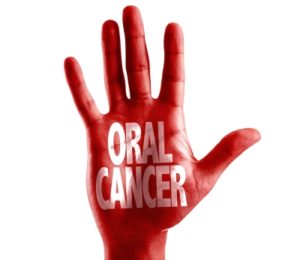Spotting the Symptoms of Oral Cancer

Scheduling teeth cleaning twice per year with your dentist in Glen Ellyn is the best way to prevent oral cancer. Family dental care in St. Charles is designed to be preventative, and only a dentist can perform a comprehensive exam of your tongue, mouth, head, and neck. It is essential to detect oral cancer early for the best possible prognosis. Always schedule regular appointments with your dentist, and continue reading to learn more about how neck pain, mouth sores, and tooth misalignment are all signs of oral cancer.
Neck Pain
Tenderness and pain in the head and neck area are sometimes signs of oral cancer. When a dentist examines you for oral cancer, he will also ask about undetectable symptoms. Be sure to disclose any tenderness, stiffness, or pain in your face, mouth, and neck, even if you think it is only minor. Some oral cancer patients also report to their dental office with unexplained numbness or loss of feeling on the head and neck.
Mouth Sores
In family dental care, mouth sores are one of the primary symptoms of oral cancer. Mouth sores can appear in many forms. Some patients have swellings or thickenings, rough spots, lumps or bumps, or eroded areas on the lips, gums, or inside the mouth. Other patients report to their dentist with persistent sores on the face, neck, or mouth that bleed easily and do not heal within a week or two. Others develop velvety white, red, or speckled patches in the mouth or on the tongue. Most commonly, oral cancer appears as a painless, flat bump in the mouth.
Tooth Misalignment
When you visit your dentist, he or she will also check carefully for tooth misalignment. Changes in the way the teeth or dentures fit together can be signs of oral cancer. Even if you do not realize your teeth have shifted, you may notice that you suddenly have difficulty chewing or swallowing, speaking, or moving your jaw or tongue.
